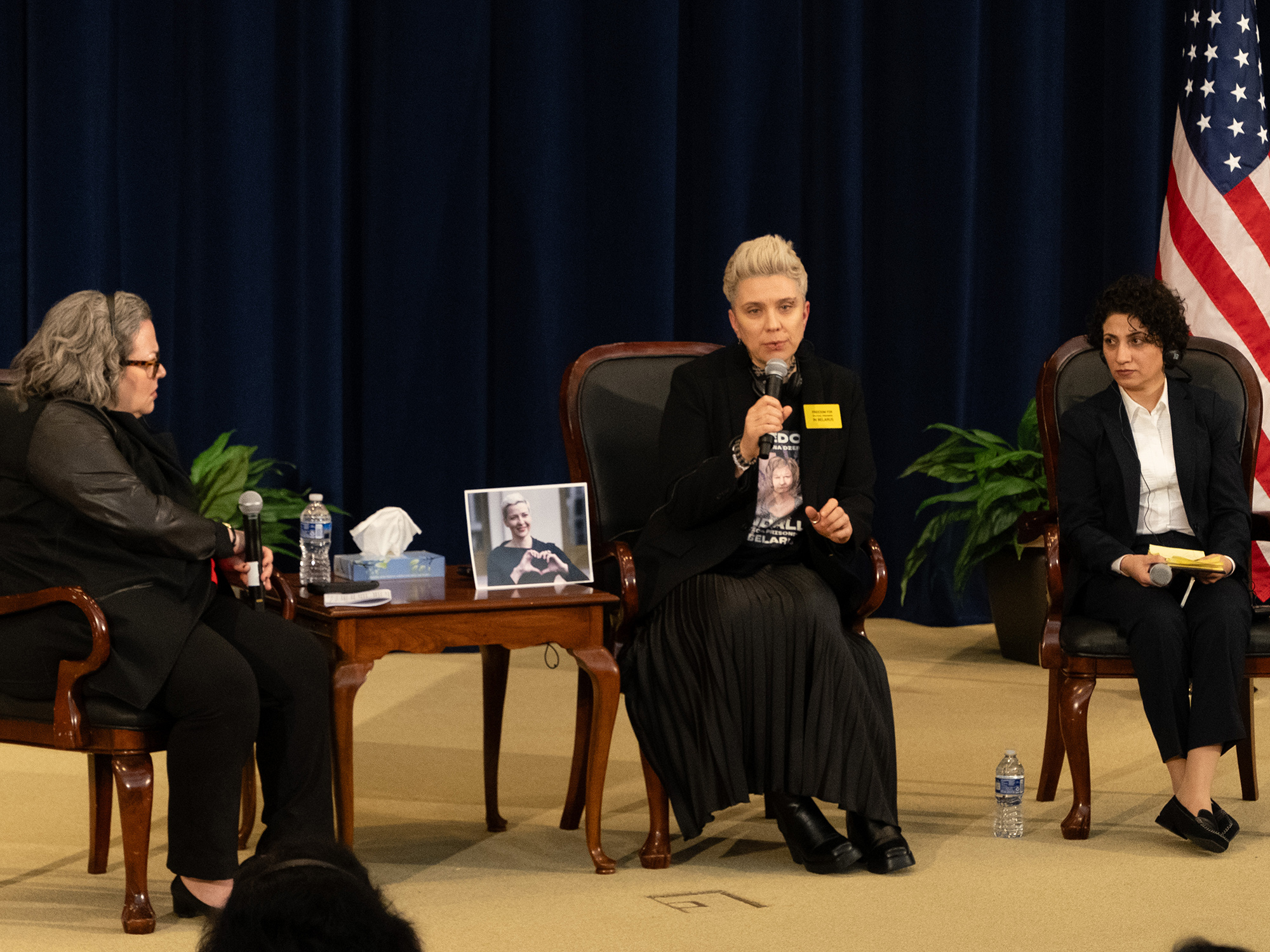The unjust imprisonment of women affects far more than those detained and their families, warned Linda Thomas-Greenfield, the US representative to the United Nations.
“It’s devastating for entire communities,” she explained. “It hollows out civil society. It creates a culture: a culture of fear. It squashes hopes for a democratic future.”
Thomas-Greenfield spoke at an event last week cohosted by the Atlantic Council and the US Secretary of State’s Office of Global Women’s Issues designed to amplify the voices of women who have survived unjust imprisonment or other human-rights abuses.
“We all must do more to familiarize ourselves with the stories and with the facts regarding political prisoners, including women political prisoners,” said Geeta Rao Gupta, ambassador-at-large at the Office of Global Women’s Issues. “We must help give voice to those who remain unjustly behind bars and those whose voices are stifled.”
The event, moderated by Atlantic Council Executive Vice President Jenna Ben-Yehuda, gathered three recipients of the US State Department’s 2024 International Women of Courage Award to share their experiences and highlight the need for international support. Below are their stories.
Martha Beatriz Roque Cabello: Why it is now “very difficult” for prisoners
- Roque, a Cuban political dissident and human-rights activist, talked about her experiences working with political prisoners and their families. “I cannot even distinguish which is worse, being imprisoned or being a relative of a prisoner,” she said.
- Speaking from Cuba—having been blocked from traveling to the United States by the Cuban government since 2018—she added that the economic crisis there, which has led to severe shortages of food and other supplies, has made the situation “very difficult” for prisoners.
- Roque herself has spent decades protesting against the Cuban government and was imprisoned twice. She now provides support to political prisoners. “I believe that being with them, even in thought, is something that will help them,” she said.
Fariba Balouch: “Pay attention” to minority groups and hold Iran’s regime responsible
- Balouch, a London-based Iranian human-rights activist, recounted how—when she lived in Iran’s Sistan and Baluchestan Province—she had escaped an abusive marriage. She said she was “afraid to speak up about that” at the time, but then realized that, as women, “we have to raise that awareness.”
- Balouch said that she felt it was her “duty” and “responsibility” to speak up for women in Sistan and Baluchestan Province; she also said that she had to make a “difficult choice” between being a mother and lifting the voices of marginalized people around her. “I decided to go with the people’s voice,” she said.
- Balouch explained that in Iran, being a woman political prisoner comes with a lot of harassment. But “if you’re representing an ethnic minority,” she said, “that even doubles your problems and challenges.” As for being an activist: “That would make it even triple.”
- She added that even once Baloch women leave Iran, they—and their families—continue to face similar threats and other pressures. She explained that she has received threats and that her son and her brother are currently imprisoned in Iran—her son was detained to visit Balouch in the United Kingdom.
- Balouch called upon the international community to support women activists and their families and to “pay attention” to minority communities “so the Islamic Republic of Iran knows that it has a responsibility” to ensure that no Baloch is killed in prison.
Volha Harbunova: This is a “global crisis”
- Volha Harbunova, a Belarusian human rights defender, recounted how she fled Belarus after being released from prison and was later appointed the representative for social issues in the Belarusian United Transitional Cabinet, the government-in-exile led by Sviatlana Tsikhanouskaya. She called upon Belarusians who have fled and live outside of the country to keep up communication with people inside the country who face repression. The Lukashenka regime “doesn’t want [us] to have that communication,” she said. “They want to isolate us. They want to stop that solidarity.”
- Harbunova argued that violence against women is a “global crisis,” which she said has recently been made clear by the rape and killing of a in Poland.
- Harbunova recalled having faced psychological torture and violence after being imprisoned by the Lukashenka regime. She also noted that political prisoners are restricted from accessing medical care, food, and hygienic products—and that they are not allowed to communicate with family or their attorneys. LGBTQI+ people in prison, she added, often face more severe sexual violence. “The issue of political prisoners is a humanitarian issue; it’s a matter of life and death,” Harbunova said. “We really need help in securing the release of those prisoners.”
